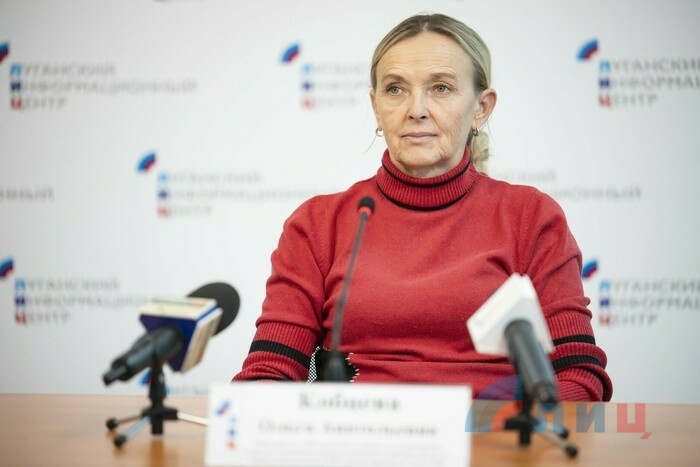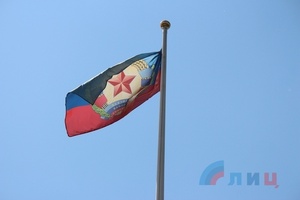
Coordinator for OSCE tried to avoid discussion of JCCC officer release - Kobtseva
Coordinator of the Contact Group subgroup on humanitarian issues for the OSCE Charlotta Relander tried to avoid during the Tuesday session the discussion of the release of the representative of the Lugansk People’s Republic Office at the Joint Centre for Control and Coordination (JCCC) Andrey Kosyak, LPR representative in the humanitarian subgroup, head of the LPR working group on prisoner exchange Olga Kobtseva said at a press briefing at the Lugansk Media Centre.
“As a Republic’s representative I brought forward a legitimate demand that Ukraine immediately return our monitor Mr Kosyak who performed his duties contributing to the safe movement of a SMM (Special Monitoring Mission) patrol,” Kobtseva said. “Regrettably, the coordinator articulated a position that avoided the discussion of the issue. We insisted as we reiterated our demand that Mr Kosyak be returned unconditionally.”
Kobtseva said that “the Republic’s representatives also insisted on the humanitarian subgroup coordinator’s stating the Donbass demands in her report at the Contact Group session.”
Earlier, head of the LPR Office at the JCCC Mikhail Filiponenko said that the Security Service of Ukraine was putting psychological pressure on Kosyak trying to force him into giving false evidence.
A Ukrainian army special operations group captured representative of the LPR Office at the JCCC Andrey Kosyak in the Zolotoye security zone on October 13. After Kiev failed to immediately return the observer as the LPR demanded, LPR Head Leonid Pasechnik said that further dialogue with Kiev within the Minsk format made no sense until Ukraine had returned Kosyak. The LPR Office at the JCCC stopped contacts with Ukraine and limited a number of movement routes for OSCE monitors. During his visit to Lugansk, deputy chief monitor of the OSCE Special Monitoring Mission Mark Etherington promised to thoroughly examine the circumstances behind the capture of the LPR officer by Ukrainian forces.
The Ukrainian government launched the so-called anti-terrorist operation against Donbass in April 2014. Conflict settlement relies on the Package of Measures for the Implementation of the Minsk Agreements, signed on February 12, 2015 in the Belarussian capital by the Contact Group members and coordinated by the Normandy Four heads of states (Russia, Germany, France and Ukraine). The UN Security Council approved the document by Resolution No 2202 of February 17, 2015 and called upon the parties to ensure its implementation.
The document provides for comprehensive ceasefire, withdrawal of all heavy weapons from the contact line, starting a dialog on reconstruction of social and economic ties between Kiev and Donbass. It also envisages carrying out constitutional reform in Ukraine providing for decentralization and adopting permanent legislation on a special status of certain areas of the Donetsk and Lugansk regions. *i*s



